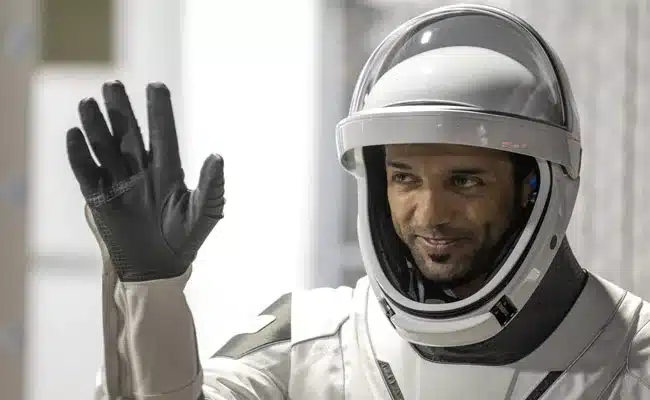Sultan AlNeyadi, the longest-serving Arab astronaut, has spent more than three months on the International Space Station (ISS). His journey has been filled with significant accomplishments and milestones, reflecting the UAE’s progress in space exploration.
On April 28, AlNeyadi made history by becoming the first Arab astronaut to complete a spacewalk during Expedition 69. The spacewalk lasted 7.01 hours and involved important tasks such as routing power cables and retrieving a crucial radio frequency unit. This achievement showcased AlNeyadi’s dedication and marked a significant moment for the UAE.
During his time on the ISS, AlNeyadi actively engaged with the community and students through various events. Close to 5,000 people participated in events held at different venues, providing them with insights into life on the ISS and the opportunity to interact with AlNeyadi. Additionally, three ham radio sessions were conducted to bring space closer to the community, involving around 100 students from schools across the UAE.
AlNeyadi, along with his Crew-6 members, successfully completed the mission to relocate the SpaceX Dragon spacecraft on the ISS. This was the third port relocation of a Dragon crew spacecraft. The crew expertly maneuvered the spacecraft and docked it with the station’s forward Harmony port.
On May 23, AlNeyadi celebrated his first space birthday on the ISS. His crew members surprised him with two homemade cakes, reflecting the treasured tradition of celebrating birthdays in space.
Throughout his three months on the ISS, AlNeyadi dedicated approximately 585 hours to conducting groundbreaking experiments and tasks. Some notable achievements include tracking his cardiovascular system using a Bio-Monitor vest and headband, preparing for upcoming spacewalks, setting up hardware for protein crystal growth experiments, conducting space biology studies, and participating in human research activities such as ultrasound scans and vision checks.
AlNeyadi also contributed to cargo work, offloading supplies and equipment delivered by the SpaceX Dragon resupply ship. The crew conducted multiple experiments, including investigating the effects of microgravity on material combustion, testing a tool for deep-space immune monitoring, and advancing research on 3D-cultured cardiac muscle tissue. They collected air samples, cleaned the Veggie space botany facility, and sent valuable scientific experiments and cargo back to Earth.
AlNeyadi’s contributions extend to setting up hardware for fluid physics studies and treating samples for experiments on engineered heart tissues. He demonstrated the use of a 3D printer for manufacturing tools, components, and experiments, showcasing the potential of biomanufacturing pharmaceuticals in space.
Overall, AlNeyadi’s journey on the ISS has been filled with achievements and significant contributions to space research, representing the UAE’s commitment to exploration and inspiring future generations.


